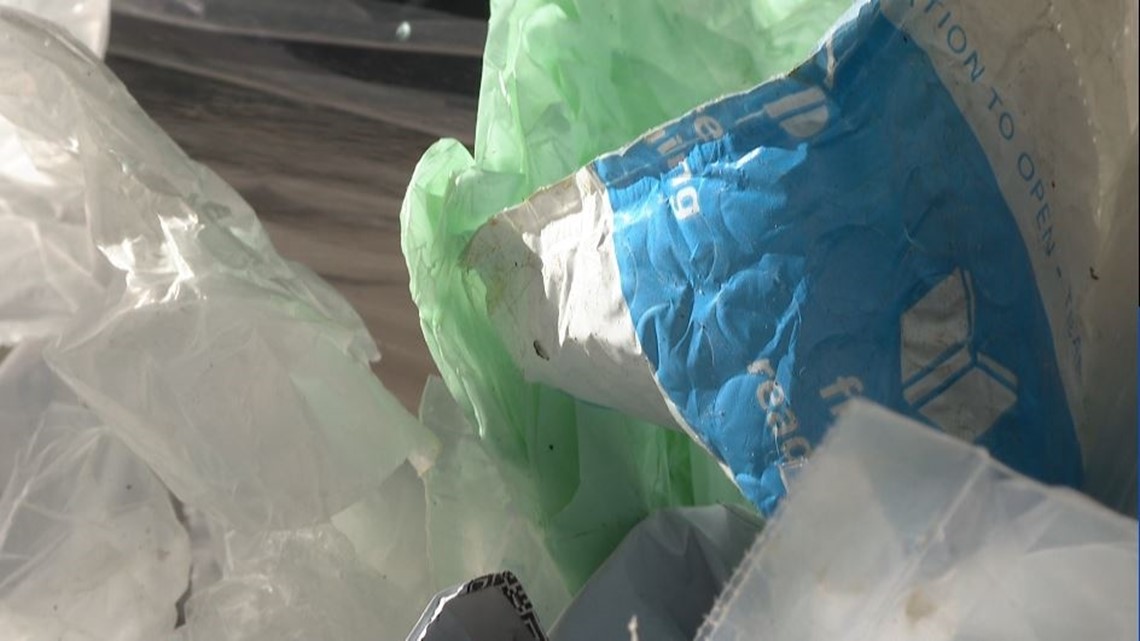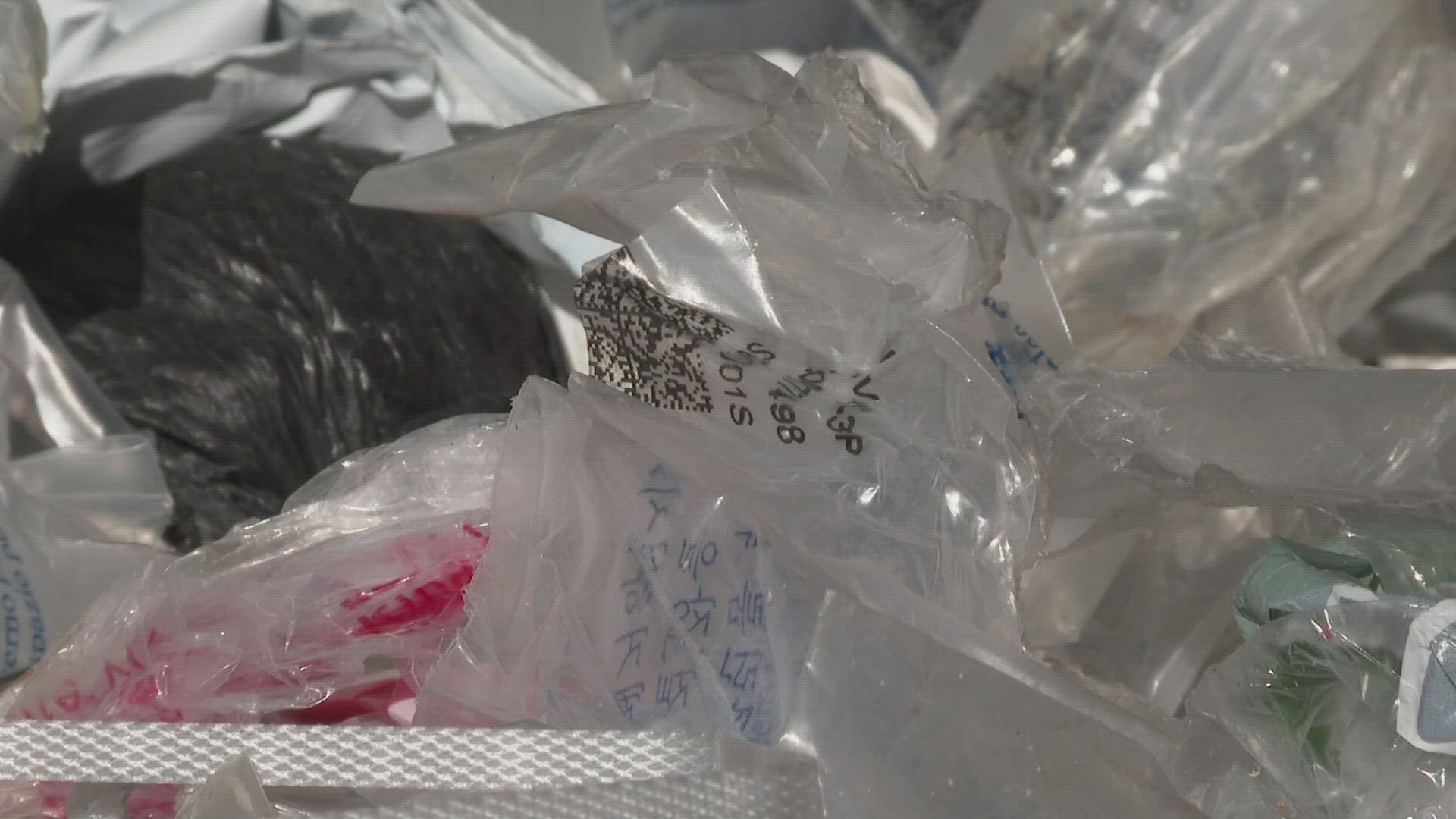COLORADO, USA — In 2023, 1.5 to 1.8 billion fewer bags were used in Colorado. That's according to an estimate by Eco-Cycle, a nonprofit recycling center that focuses on zero waste.
The organization was one of the supporters of the Plastic Pollution Reduction Act, a Colorado law that was part of House Bill 21-1162. The law phases out the use of single-use plastic bags.
"It took many years to get it passed but we have become now a leader in the nation," Randy Moorman, the director of policy and community campaigns at Eco-Cycle, said. "It’s a huge impact as we’ve seen dramatic change in how we as customers go into our stores and use products like this. It's become a pretty easy and regular change that we have accepted, which is great."
Last year, the law charged a 10 cent fee for every plastic or paper bag a customer carried out of a store. It was a way to encourage the use of reusable bags. Moorman's organization has estimated that encouragement worked.
"We estimate that as a state we reduced by 1.5 to 1.8 billion bags," he said as he stood next to a pallet filled with bags. "This bale has about 90,000 bags in it, so imagine 20,000 of these bales is how many bags we have reduced in one year in the state of Colorado."


Moorman shared how they came to their 1.5 to 1.8 billion estimate.
"The number of bags reduced was calculated by using data collected from Boulder and Aspen which showed that bag use dropped by 70-85% when they started their bag fees," he said. "We estimated the reduction for the state using the state's population and National Geographic’s estimate that on average each U.S. person uses 365 bags per year."
While plastic bag use, according to Moorman, is down, it's not completely out. The city of Denver told 9NEWS since 2021 they've collected $5 million from their plastic bag fee. They've used some of that money to buy 58,000 reusable bags for community groups to distribute and educate people on the impact of single-use waste.
"These bags get into our creeks, they get into our parks, you can see them in our trees and they create a hazard for wildlife," Moorman said. "But also for humans because they easily break down into microplastics, they get into the water we drink, into the air we breathe and even eventually get into the food we eat."
Moorman expects an even greater bag use reduction in 2024. A portion of the law that went into effect Jan. 1. prohibits stores from providing single-use plastic carryout bags to customers.


Some stores still have plastic bags. Moorman said those big retail stores have until June to use up the rest of their stock.
Moorman is happy with the impact this law has already made. He said he's looking forward to the ripple effects it will have for the years to come.
"I think it’s just phenomenal that we have been able in a relatively short amount of time make some dramatic changes that are not only going to have an impact on the day-to-day in our environment and health but on future generations, so that’s really exciting," he said.
House Bill 21-1162 does not apply to materials used in the packaging of pharmaceutical drugs, medical devices or dietary supplements.
The bill also prohibits retail food establishments from distributing an expanded polystyrene product for use as a container for ready-to-eat food. Establishments that bought expanded polystyrene products before Jan. 1 can continue to use the products until their supply is depleted.
SUGGESTED VIDEOS: Latest from 9NEWS

